|
Imagine trying to find buyers for a batch of 800 chickens in one 'fowl' swoop - that was the problem local field manager, Phirun Oum, was tasked with at the end of every chicken cycle. It's fair to say a few feathers were getting ruffled in the process. Now, in a quantum leap forward we've just nailed daily supply! We've managed to switch from sporadic large-batch sales, to selling up to 30 chickens each day, all made possible by the new production coops at the microfarm. We're egg-static that Phirun's hard work's paid off and we've now got five happy customers regularly buying from us. Three of these customers sell fried chicken on one of the busy highways from the capital city to the flourishing southern coast. As Phirun explains, "daily supply cuts out unscrupulous middle-men and we get better prices for the franchisees as we keep our customers". Regular customers also know that by choosing Catalyst chickens they're helping the poor in their community (franchisees receive 100% of the profits for the chickens they've raised). Profit paymentsIn Cambodia to explore market opportunities in the NGO restaurant sector, Gerard accompanied Phirun on a recent profit payment trip to group seven franchisees. Happy to receive their profits, they expressed new-found hope for their future, and had only one question for Gerard: "When can we raise more chickens at a time so we make more profit?". Over time, they'll raise increasing numbers of chickens, but to decrease their business risk they start small. Without the programme, Muth Sinath and Chrun Vannak (pictured above receiving their profit payments) wouldn't have access to fast growing commercial-breed chickens, as the chicks are normally only sold to large-scale producers in Cambodia. Franchisee profile - Chrun VannakChrun Vannak used to be a builder until a cow charged into his back a year and a half ago in a rice paddy, tragically leaving him paralysed and unable to work. The family borrowed money to pay his USD$6,000 medical costs while he was in hospital, vulnerable to unethical doctors who repeatedly told him if he stayed just "one more week" he would be able to walk again. He has two steel rods in his back and the same doctors are now advising him that he will walk again if the steel rods are removed, for which he would be charged another $600. Back home after the accident with four children to support and only $7.00 in savings things seemed bleak. His younger children weren't able to attend school regularly as the only household income was from growing rice on three hectares of land. But last year he became a franchisee, once again able to contribute to household income. So far he's raised 157 chickens and earned a valuable profit of NZ$83.00, giving him renewed hope for the future. Five things you didn't know about Cambodia
0 Comments
In the last batch of 900 chickens raised by franchisees (groups two & six), 67% made a profit, 25% broke even and 8% made a loss in the cycle (due to stock loss). Of those who made a profit, the average profit was NZ$59.00. Profits were earned over 50 days for about 30 minutes work a day. This additional income is important supplemental income for people normally earning between $0.50 and $2.00 per day.
Top performer, Ben Tabb (above right) earned NZ$87.65 in the cycle working part-time for half an hour a day. When he started the programme, Ben (age 45) had a total of NZ$14.35 in life savings and an irregular income working in construction. Since joining as a franchisee he's had total sales from his chicken-raising business of NZ$1,606.25 which has earned him a profit after expenses of NZ$354.78. Better still, he now has savings of NZ$177.20, which will act as a buffer against future hardship. Funding a family like Ben's to join the programme is easy, if you'd like to find out more click here.
Nak Vorn has doubled her life savings doing 35 hours' work as a microfranchisee! Nak is a 36-year-old mother of four from Prey Svob village. In her first chicken-raising cycle she earned an amazing profit of US$32.49 for one extra hour's work a day. Before joining our programme, her total life savings amounted to US$16.00. Half of Nak's US$32.49 profit is reinvested into her business, the other half she can spend on her family. Previously, her main income source was from growing vegetables seasonally for six months of the year. For this she earned around US$1.35 per day for eight hours' work. As a result, her family has gone without regular protein, sanitation, or clean drinking water in the past. Life savings nearly doubled - Ouk ChhavOuk Chhav is in our second microfranchisee group and earned US$48.23 (NZ$57.00) in his most recent chicken-raising cycle (after expenses). He achieved this working approximately one hour per day. Before joining the programme his main income earning activity was growing vegetables on one hectare of land, which only earned him around US$1.25 per day. His total life savings before joining up amounted to US$25.00, so the extra $48.00 has also nearly doubled his life savings and will help him provide for his family.
To find out more on how to be part of this program, please click here. We’re about to embark on a whole new stage in our development! After three years of working on our franchising programme, we’ve outgrown our NGO partner’s small school site. This is where we currently raise one-day-old chicks through their vaccination period for the microfranchisees. We’ve also outgrown our central chicken coop which is starting to fall apart. So it’s time to develop a micro-farm. The farm will be used to expand our central chicken coop facility so we can increase capacity, test new franchisable concepts and improve production methods (for example recycling the chicken manure). We’ll also raise and sell chickens at the farm to cover operational costs within Cambodia. We anticipate that a micro-farm will support around 250 families to run their microfranchises. Over time, we plan to replicate this model to other regions in Cambodia and South East Asia. We’ve now located a perfect piece of land (114m x 42m) for our first micro-farm, which is 2km from our current centre in Chhouk. We plan to build five broiler coops and a base for our project there, as well as dig a well and fence off the property for security, in partnership with local NGO World Education School. We’re excited about this next phase and we’re inviting you to help us.
To secure the land and pay for infrastructure, we need to raise NZ$12,000 by November 2014. We’ve already raised 10% ($1,200) of the $12,000 needed by way of a donor who has committed to match, dollar for dollar, the first $1,200 raised. That means for every $1.00 you put in there will be a $2.00 benefit, up to the first $2,400. We’ve set up a give-a-little zero fees fundraising page - every dollar counts and no contribution is too small. To help us achieve our goal so we can help more ultra-poor people, click here to donate. In appreciation, Gerard and Hana Wakefield Co-founders 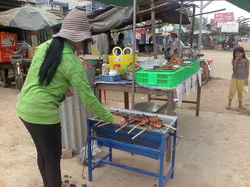 "Really delicious!" That's the verdict from customers who've been seeking out the Khmer herb & lime flavoured grilled & fried chicken at our new street food stall in Chhouk township. The stall means we can now sell chickens produced by microfranchisees in our programme direct to the public instead of back to suppliers as the only option. We started selling grilled & fried chicken from the stall in June, and while it's early days, we're delighted with its success. Local resident Sang Sang (pictured) has been brought in to manage the venture and is currently selling around 13 chickens a day, for a 50% higher price than we can get from selling to suppliers. Who knows, from humble beginnings maybe one day our brand will be as synonymous with fried chicken in Cambodia as a certain white-haired gentleman from America! Click here to be part of our life changing project! When we first started this project, it was important to know what kind of difference we would make in the lives of the ultra poor of Cambodia. It had to impact their family in a way that would break the cycle of poverty and be able to provide for their family in the most basic way, like sending their children to school, having access to medical care when required and being able to afford regular meals. Many of our microfranchisees are already working long hours for as little as 50 cents a day and it was important that the business they were going to venture into was not going to interrupt their current main source of income. We designed a program that would only take an extra one hour’s work a day to maintain (usually completed before or after work). After our successful microfranchising cycles, we were able to compare the profit of 1 hour of work with Catalyst vs 1 hour of work at their usual job, as well as comparing how many hours it took to make the average ultra-poor monthly wage of $45: What an amazing difference! We knew we were on to something great when we saw the difference it was making in the lives of people who need it the most.
Our team at Catalyst Microfranchising invites you to be a part of this amazing journey with us. Let’s change the world, one family at a time. Click here to find out how to be part of this project. 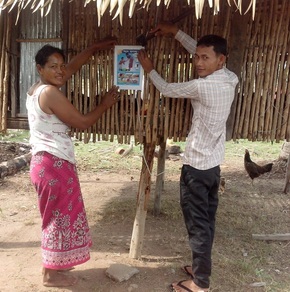 After their first chicken raising cycle, one group of franchisees had higher loss of chickens than other groups. We conducted a thorough investigation to find out if this group was doing anything differently to the other microfranchisees and noted that there was a difference in disease prevention practice. One of our profitable business owners, Heng, discussed his key practices to ensure his chicks grow healthily until the end of the cycle. Heng’s eight keys for successful results are:
Heng’s keen to keep raising chickens through our programme and hopes his strict hygiene protocol will help others to repeat his success.
Heng made $20.66 profit in his last cycle for one hours work a day over 45 days. Many of our villagers would have to work over 20 ten hour days to make the same amount of money in their normal jobs. If you want to make a different in someone’s life today, you can start with as little as NZD $100 and help the ultra-poor make a difference in their lives. Click here to see what you can do to help! |
our storyWe founded Catalyst social enterprise after living in South East Asia and seeing first-hand the daily struggle rural villagers face in meeting their basic needs. Archives
December 2017
Categories
All
|

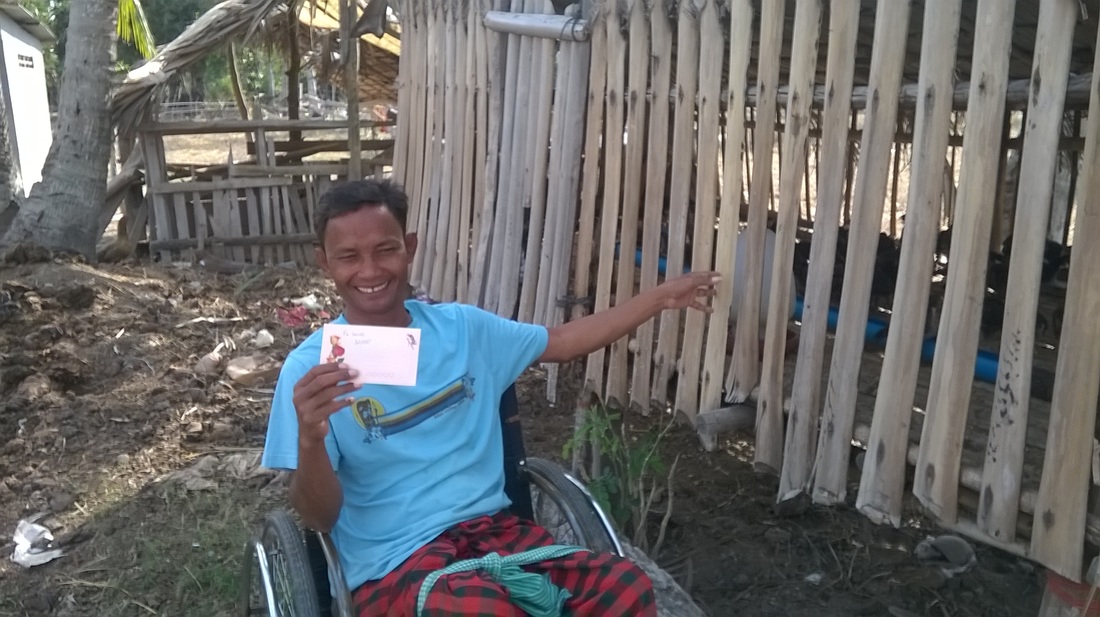
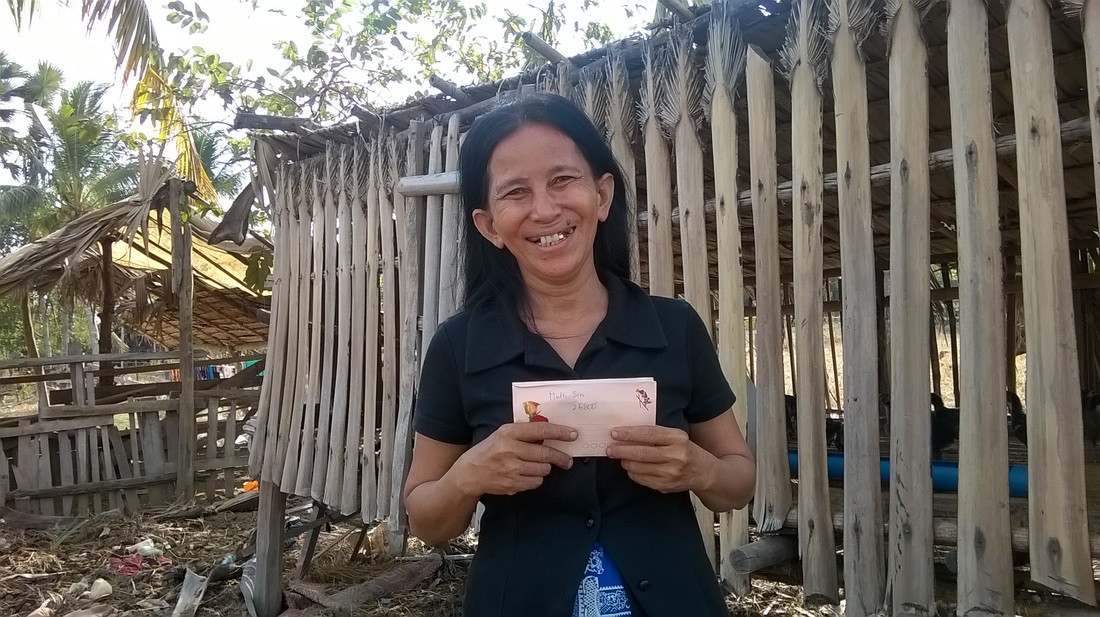
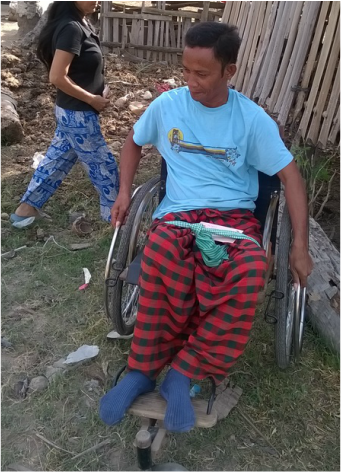
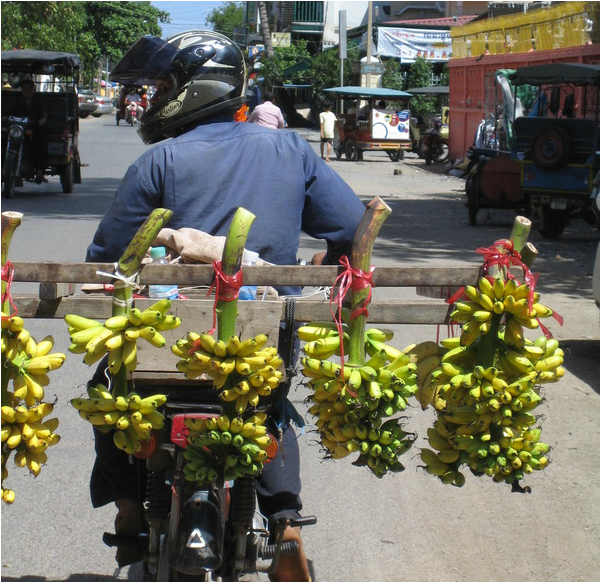
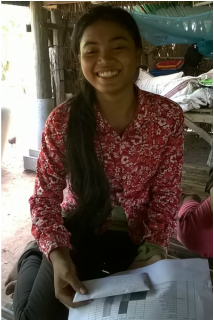
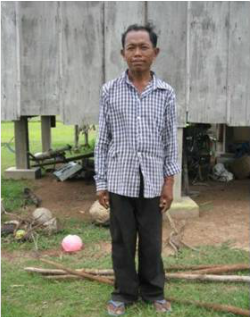
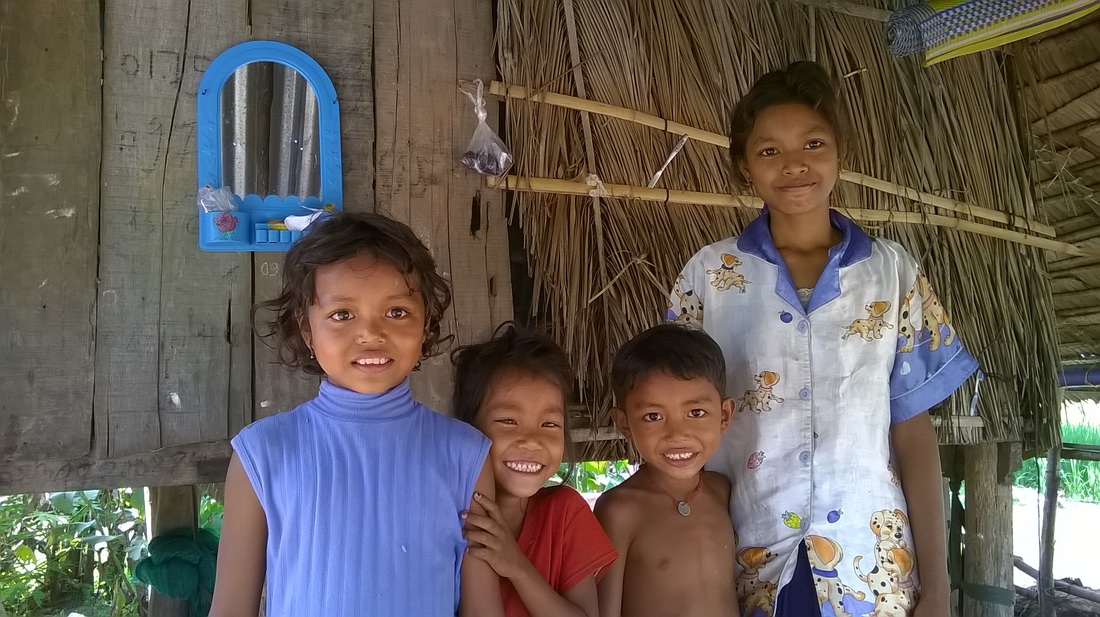
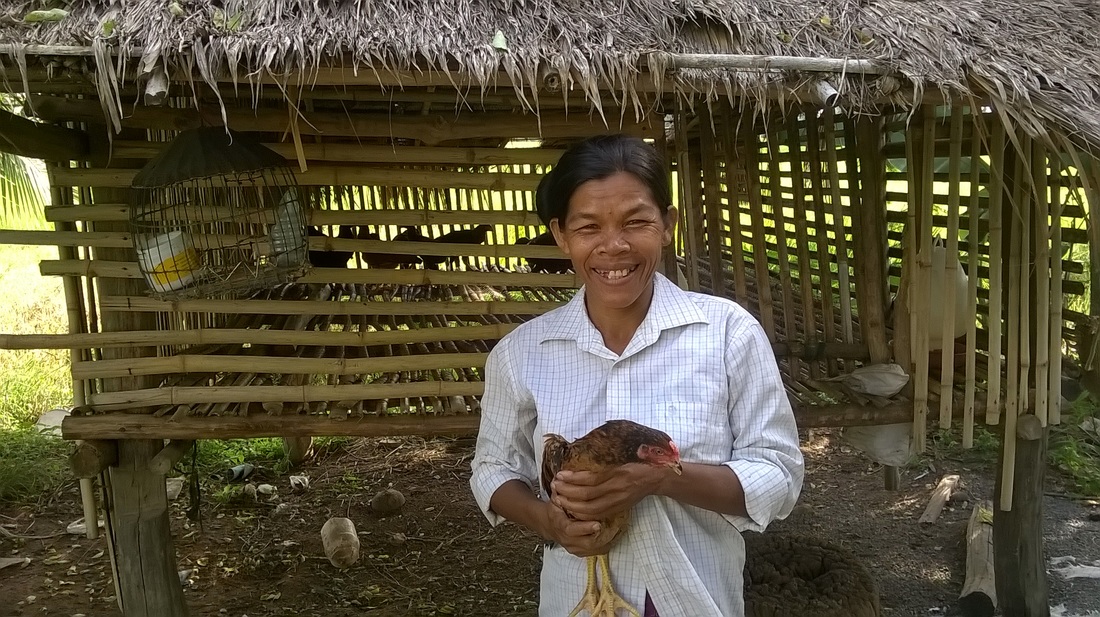
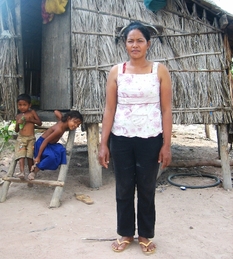
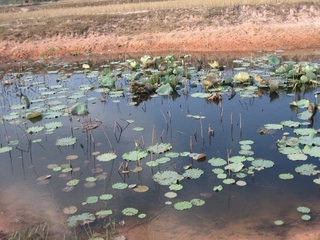
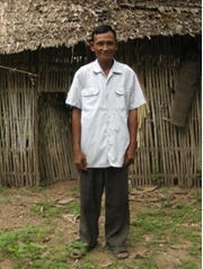
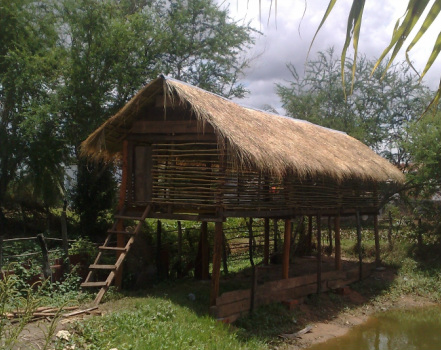
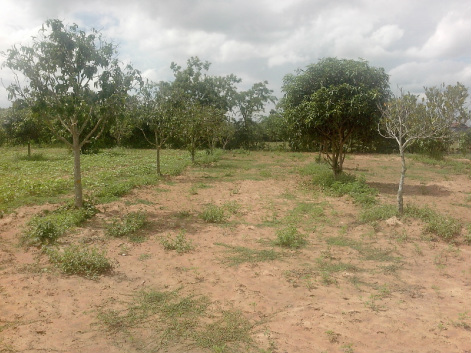
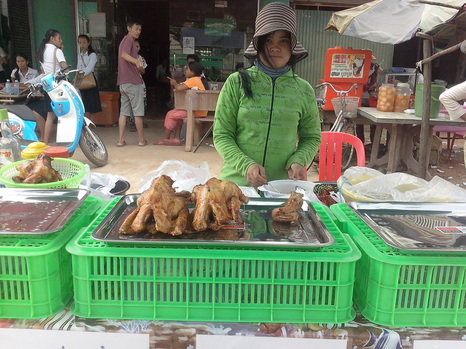
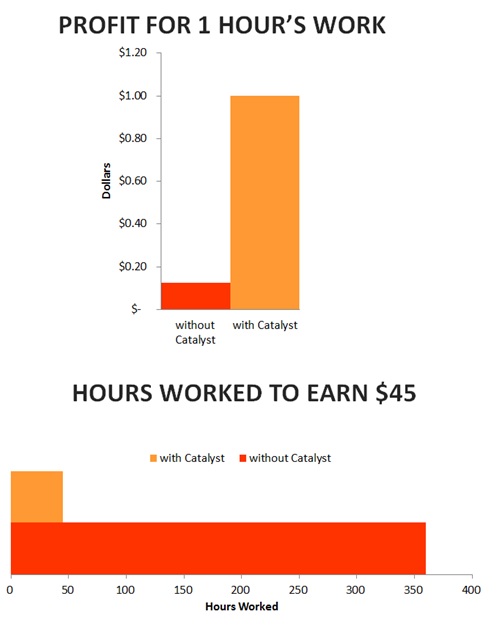
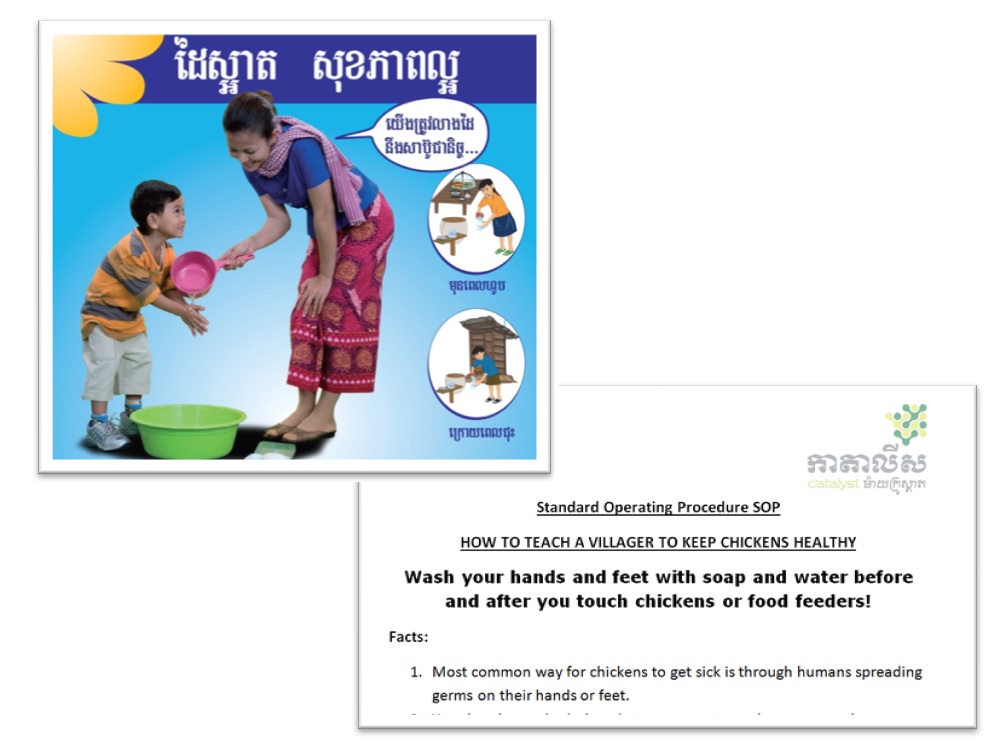
 RSS Feed
RSS Feed